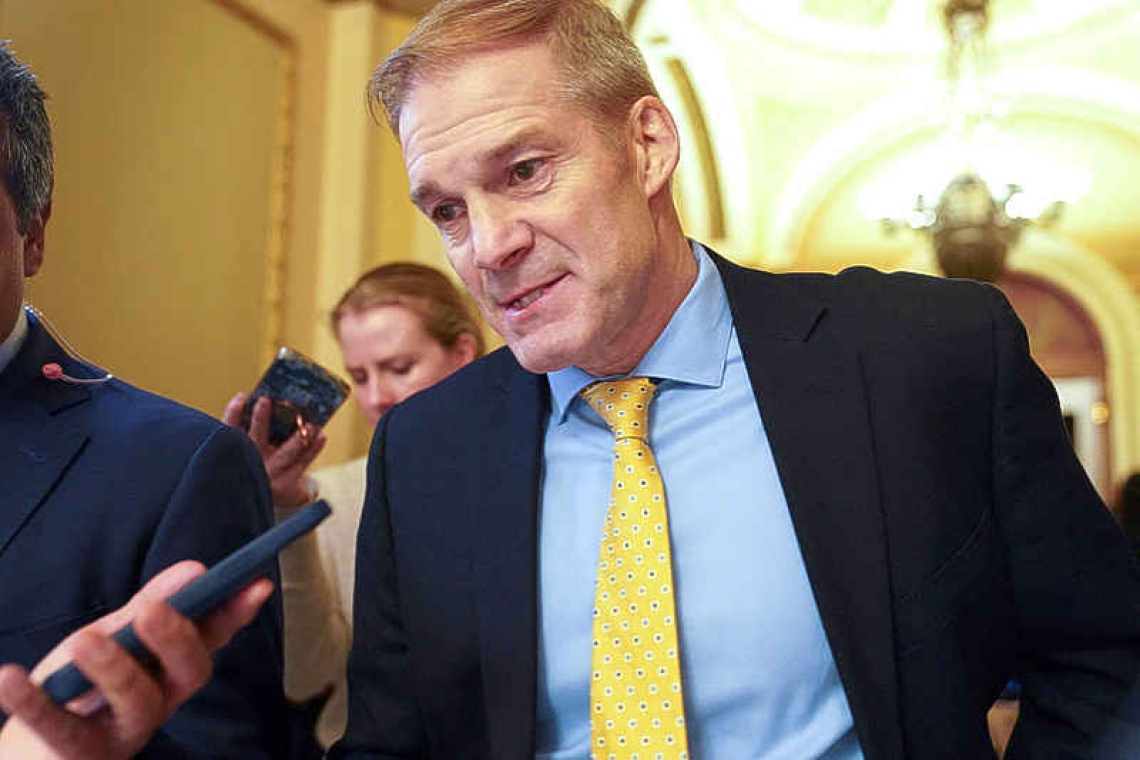U.S. Rep. Jim Jordan (R-OH) speaks to reporters as he leaves the House Chamber after three rounds of votes failed to elect a new Speaker of the House on the first day of the 118th Congress at the U.S. Capitol in Washington, U.S., on Tuesday.
WASHINGTON--Hardline Republicans in the U.S. House of Representatives on Tuesday repeatedly blocked fellow Republican Kevin McCarthy's bid to become the chamber's powerful speaker, leaving the chamber leaderless and plunging their new majority into turmoil.
In the first day of what could prove to be a brutal showdown between about 20 hardliners and the other 202 members of the Republican caucus, McCarthy failed in three ballots to achieve the 218 votes needed to become speaker, a role second in line to the Oval Office after the vice president.
It was a disconcerting start for the new Republican majority and highlights the challenges the party could face over the next two years, heading into the 2024 presidential election. Their slim 222-212 majority gives greater clout to a small group of hardliners, who want to focus on dealing defeat to Democrats and pushing investigations of President Joe Biden's administration and family.
McCarthy, 57, from California, knew he faced an uphill climb heading into Tuesday's vote and had vowed to continue to force votes, but the chamber on Tuesday evening voted to adjourn until noon ET on Wednesday, a move that would give Republicans time to discuss other candidates. Popular conservative Representative Jim Jordan, 58, from Ohio, won 20 votes in the last ballot of the day, far from the 218 threshold to become speaker but enough to stop McCarthy.
"I think that Kevin knows that this is his last shot," said Representative Kenneth Buck, who had voted to support McCarthy. He noted that McCarthy previously tried in 2015 to become speaker and failed in the face of conservative opposition, adding, "He's not gonna have this chance again."
A protracted speaker election could undermine House Republicans' hopes of moving forward quickly on investigations and legislative priorities that include the economy, U.S. energy independence and border security.
The chamber's top Democrat, House Minority Leader Hakeem Jeffries, bested McCarthy in all three votes. In the day's final tally, Jeffries led McCarthy 212 to 202 votes. A majority of those voting, not a plurality, is needed to determine a speaker.
A standoff would leave the House largely paralyzed and could force lawmakers to consider another Republican candidate. In addition to Jordan, incoming Majority Leader Steve Scalise, 57, from Louisiana, was seen as a possibility.
The last time the House failed to elect a speaker on the first ballot was 1923.
Jordan himself had spoken in support of McCarthy before he was nominated, and all three times voted for him. "We need to rally around him," Jordan had said in an impassioned speech on the House floor. "I think Kevin McCarthy's the right guy to lead us."
Jordan is a staunch ally of former President Donald Trump and a co-founder of the conservative House Freedom Caucus. A former college wrestler, Jordan is preparing to oversee the House Judiciary Committee's investigation of the Justice Department and FBI under Biden.







